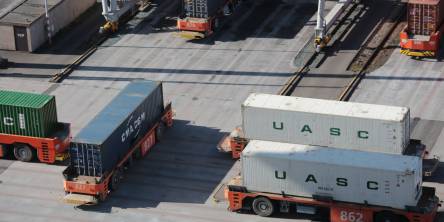Advantages of Blockchain in Charity
“There are 3 eras of currency: Commodity based, politically based, and now, math based.”
Chris Dixon, Co-founder of Hunch now owned by eBay
“Blockchain: A ledger or a record that keeps track of any kind of data transaction on a network”. In layman terms, blockchain is just a chain of blocks, yet not in the exact sense of those words. Blocks store digital pieces of information and all of them are linked through codes to create a chain. This information could be monetary transactions, files, contacts–in short anything that a user wants to share.
Blockchain technology has gained so much attention because of its potential across various sectors. It is a revolutionary technology as it makes networks more transparent and decentralized. With the rise in its usage, developers are now able to use it in different applications.
One sector particularly well-positioned to benefit is nonprofit fundraising. Nonprofits could manage, distribute and track funds in a secure and faster way, look across borders, and much more. Let us take a look at how organisations could improve their fundraising measures with blockchain :
Added Security and Transparency
Blockchain verifies every transaction you make by forming a network of computers across the members. Therefore, no transaction can be carried out until and unless all the members of the network approve it. It will increase the security and transparency of the platform. All the members of the network will be able to access the information about where and how the donations are being used. Further, they could also keep a track of donations in a much organised manner.
Moreover, there is an additional feature–Smart Contracts, that could prove very helpful. These are self executing programs that can be associated with a block. Therefore, a lot of time consuming processes can be automated using this tool.
A wider audience
It is very difficult and time-consuming to transfer traditional currency for one country to another. Cryptocurrencies are non-geographic currencies. Charities could accept donations from anywhere in the world, without any need to pay foreign exchange fees or consideration of currency exchange rates. Nonprofit organizations working in difficult parts of the world would also have massive benefits.
Better trackability of funds
Scandals have lessened the confidence in the charity sector, but blockchain and cryptocurrency could improve accountability.
With traditional measures, it can be difficult to verify progress on certain campaigns. But with smart contracts on blockchain, it can be ensured that funds are only released to an organization once they can prove their work is having an impact. Failure to meet certain targets could even result in donations being reimbursed.
Thus, blockchain would help fuel trust into this sector.
Connecting with the millennials
Millennials demand the use of technology. The new generation is also more likely to thoroughly research about the charity or organization to which they donate. A YouGov Survey found that half of those between 18-24 yrs of age prefer to donate using a crowdfunding platform, and about 40 percent of those between 18-35 yrs of age believe that only a small amount of their donation goes towards supporting the specific cause.
This presents an opportunity to offer a blockchain-based fundraising platform that is very much compelling to a large audience of potential donors.
When people think of blockchain and cryptocurrency they don’t typically think of philanthropy. However, these are emerging as a new fundraising vehicle. This is because nonprofit organisations face a lot of scrutiny due to lack of transparency, accountability and limited ways of accepting donations. Blockchain brings something that could resolve many such problems. Building applications that can show people how the money flows through your organization, would definitely help your nonprofit fundraising.
Similar Articles
Enterprise cloud adoption is now a strategic goal. As modern businesses migrate to the cloud for scalability, flexibility, and cost-effectiveness, integration with DevOps principles becomes important. DevOps in the context of cloud adoption is more than just a methodology; it has shown to be a game changer, significantly enhancing efficiency, collaboration, and overall development processes.
Digital transformation is leading the way in reshaping the factories of the future. The term smart factories or industry 4.0, enables manufacturers to refine production processes, manage global market competition, and realize significant returns
In the fast-paced world of photography and videography, staying ahead of the curve requires cutting-edge technology and innovative features. One brand that has been making waves in the industry is Insta360, and for good reason. Insta360 cameras have gained popularity for their exceptional capabilities and user-friendly design.
In the ever-evolving landscape of education, fostering an early interest in coding has become crucial. One innovative tool that has taken the realm of coding education to new heights is the CoDrone. Tailored specifically for young learners, CoDrone not only introduces kids to the fascinating world of programming but also brings their coding adventures to life in the sky
In this digital era cloud computing has become an integral part of business operations. It is flexible, scalable and cost-effective, making it a top choice for many organizations. But with the arrival of various kinds of cloud solutions, selecting which one's right for your business can be a bit overwhelming.
In the dynamic realm of the Internet of Things (IoT), establishing a resilient and efficient infrastructure is imperative for the prosperity of any IoT initiative. Whether working on a smart home system, industrial automation, or healthcare solutions, thoughtful evaluation of diverse factors is indispensable
Over evolution in software testing, two prominent testing methodologies have surfaced: Big Data Testing and Traditional Database Testing. Big Data Testing is tailored for handling the extensive amounts, diverse types, and rapid data flow inherent in the big data environment.
In the fast-paced world of supply chain management, it is vital to coordinate logistics operations for businesses aiming to meet customer demands, reduce costs, and stay competitive.
The handling of projects may be characterized as a laborious and complex responsibility. From the formation of employment positions through allocating resources for managing work in progress, significant amounts of business hours and resources are used.









